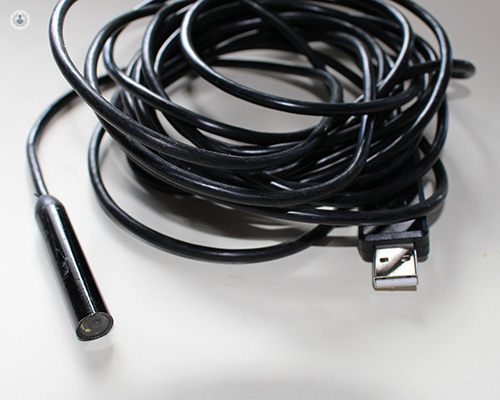What are the benefits of having an endoscopy?
Escrito por:Here, Mr Marek Czajkowski, a highly experienced, skilled, and qualified consultant gastroenterologist and hepatologist, provides an all-you-need-to-know guide with regards to endoscopy.

What is an endoscopy and how does it work?
An endoscopy is a technical term where you pass a thin, flexible tube through an existing opening (usually the mouth or nose). There is a small camera attached to this tube, and there is channel on the endoscopy that allows us to carry out complex procedures such as removing polyps.
What are the different types of endoscopies?
Common ones are gastroscopy, colonoscopy, and flexible sigmoidoscopy. An endoscopic ultrasound is also quite commonly used.
What are the benefits of having an endoscopy?
Endoscopy is relatively safe, quick, and comfortable. It is an effective way to ensure that there are no significant illnesses, and we can take biopsies to make sure we detect or rule out any serious condition.
It is a day-case procedure, which is another benefit, as patients can go home on the same day. Sometimes, we use sedation to make the procedure even more comfortable for patients.
What should I expect during and after an endoscopy?
People often worry about having something placed into their body, but it really is an incredibly safe procedure. We often describe the process to patients to help them visualise it and become less worried about it.
People come into a theatre with a lot of machines. There may be more doctors in the room to ensure ultimate safety. I will then get the patients’ consent, and at this stage we will prepare the sedation.
In the case of gastroscopy, an anaesthetic spray will be sprayed down the back of the throat. We make sure it does not go anywhere near the windpipe so patients will be able to breath just fine.
In the case of a colonoscopy, which is a slightly longer procedure, it can be a little uncomfortable for patients when we are going around the loops in the bowel. After the procedure, there is a discharge process. Obviously, we cannot see the results immediately.
Normally, patients will feel bloated after the endoscopy. This is temporary, and the air starts to come out in the usual way, and patients do not generally feel any pain afterwards.
I would recommend that patients prepare questions before undergoing an endoscopy. Do your research before. Patients should be aware that they must undergo a bowel emptying process before undergoing a colonoscopy. If we are doing a gastroscopy, it has to be done on an empty stomach. Each unit will provide patients with instructions.
To schedule in an appointment with Mr Marek Czajkowski, simply head on over to his Top Doctors profile today.


